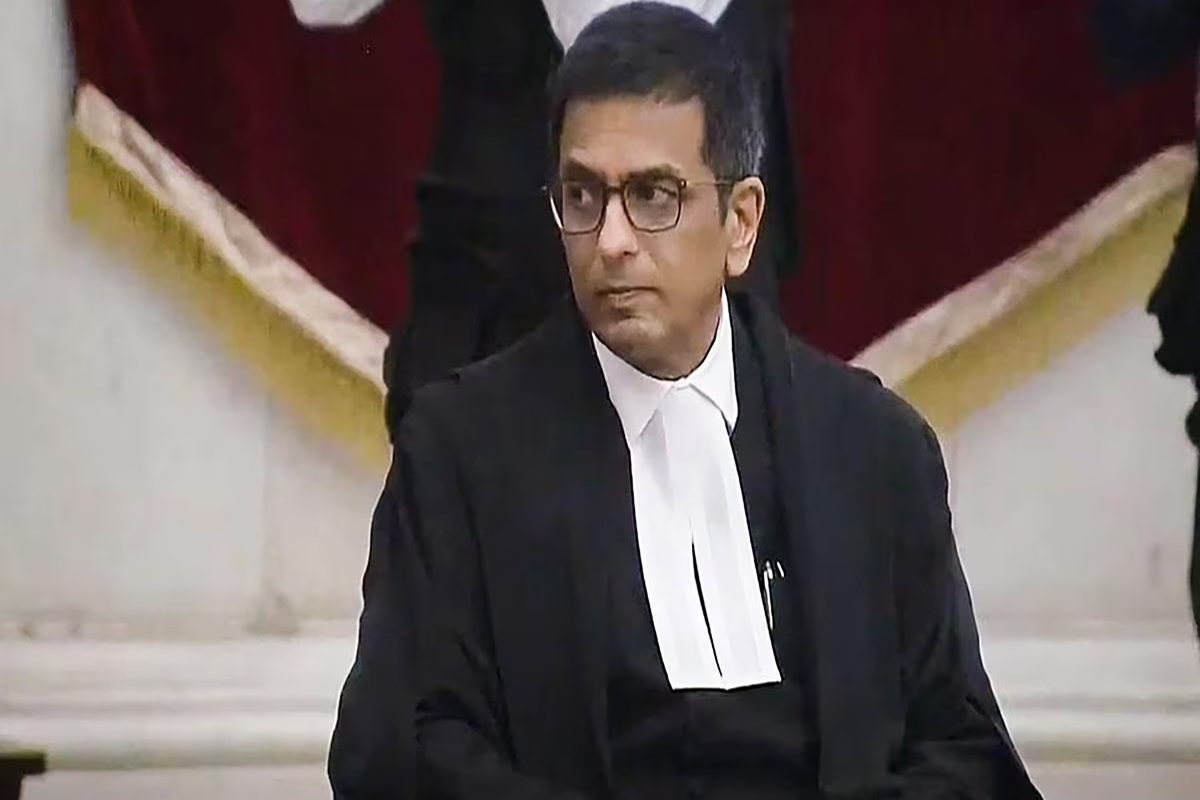Chief Justice of India, Justice DY Chandrachud on Saturday called for institutionalising Lok Adalats at the Supreme Court, stating that people are fed up of long delays in judicial processes and want to come out of it agreeing for any settlement – even at a cost less than what they are legally entitled to.
CJI Chandrachud also cautioned that institutions are resistant to change, often questioning attempts to incorporate new elements in their working. However, he said that once a change is implemented it becomes an integral part of the system and called for institutionalising the Lok Adalats at Supreme Court for dispensing justice and should it not remain a one-off initiative.
Advertisement
“I hope that we will now institutionalize this process of dispensing justice through Lok Adalat…whatever we do as a court must be institutionalized. It should not be that it is just a one-off initiative, which is then forgotten for the future, … We must ensure that it becomes part of our processes and systems.”
Speaking at the commemoration function of the Special Lok Adalat week that had commenced on July 29 and concluded on August 2, the Chief Justice Chandrachud urged the participants to remember the human face behind each case.
The five days long special Lok Adalat at the Supreme Court saw seven benches – each panels having two judges, with the exception of CJI Chandrachud having three judges on his panel, and two members of bar – one each from Supreme Court Bar association (SCBA) and the Supreme Court Advocate on Record Association (SCAORA) on each panel.
The matters were heard every day from Monday to Friday in the post-lunch session. However, the only distinction was that unlike the Lok Adalat at the district courts level, the litigants were not personally present for the settlement of their cases at the special Lok Adalat at the Supreme Court.
Dwelling on different aspects, the Chief Justice Chandrachud pointed to the agonising and tiresome judicial process that tempts the litigant to accept settlements even below their legal entitlements. He cited an instance where top court judge, Justice Vikram Nath rejected a settlement offer of Rs One lakh, and instead awarded Rs six lakh in addition to what was settled in the Lok Adalat with consent of the litigant.
In an observation pointing to the frustration of the litigant with the long delays inherent in the judicial process, Chief Justice Chandrachud said: “Parties are ready to accept any sort of settlement because they want to get out of the system” as they get fed up with the system.
“This is also a problem which we see as judges. The process is the punishment, and that is a cause for concern for all of us judges. So very often we say we will not allow this matter to be settled. Because the settlement reflects the pre-existing inequalities in society. So as judges we try and say that we will not settle it and we’ll try and get you a better outcome,” the CJI said.
The Chief Justice Chandrachud said that people, even those in power corridors are not aware of the nature of cases that Supreme Court judges deal with including trivial matters impacting the lives of the people.
To buttress his point, the CJI recalled his conversation that he had with a with a former bureaucrat who was well-placed in administrative hierarchy, the CJI said, “…A very senior secretary from the Govt of India and former civil servant…said that he never knew that Supreme Court deals with such small cases because we are so used to looking at the Supreme Court dealing with the all the big ticket cases…what is lost to so many people are the kind of small work we do in the Supreme Court…When the Constitution was made by stalwarts like BR Ambedkar, they did it with a mission…this was a court which was being set up in a poor society where there was an absence of access to justice…idea behind the establishment of this institution was…this would be a court reaching out to the lives of common citizens…purpose of Lok Adalat has been to take the justice to the homes of people…”
Also speaking on the occasion, Union Law Minister Arjun Ram Meghwal said that mediation is a part of Indian culture, citing Lord Krishna’s attempt to mediate between the Kauravas and Pandavas in the Mahabharata.
Meghwal acknowledged the settlement of over 1,000 cases during the Special Lok Adalat, including civil, matrimonial, and land acquisition disputes. The Union Minister stressed the importance of resolving disputes amicably whenever possible.











